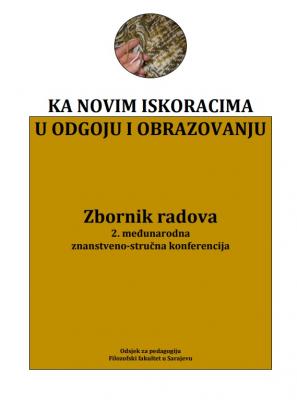ODGOJNI UTJECAJI I IZAZOVI ODRASTANJA U DIGITALNOM VREMENU
UPBRINGING IMPACTS AND CHALLENGES OF GROWING UP IN DIGITAL AGE
Author(s): Vesna Bilić, Ivana Buljan AjelićSubject(s): Media studies, Developmental Psychology, Clinical psychology, ICT Information and Communications Technologies, Pedagogy
Published by: Filozofski fakultet Univerziteta u Sarajevu
Keywords: upbringing; growing up; media; parenthood; peers; children’s rights; identity; relations;
Summary/Abstract: Growing up in digital age provides children with a number of positive opportunities, but in the same time the dangers for their healthy development and well-being. Internet and especially the social media (Facebook, Instagram, etc.) have strongly transformed the world of childhood. In addition, they have made the upbringing more challenging, and it seems that it has also experienced a „digital revolution”. The aim of this paper is to demonstrate based on the recent literature how modern media influence upbringing and shape the different dimensions of child and adolescent lives, their identity and relationships with their parents and peers. Introductory it is indicated a new trend of parents who publish on social networks details of their child’s prenatal life (ultrasound imaging) and after their birth create profiles and child’s digital identity, and try to gain popularity (micromicrocelebrity), but also achieve material benefit or manipulate. Parents use the media to calm, entertain, reward or punish children, but also to control them. Media is also the main source of upbringing information, though they are often suspected („Google tutor“). Research suggests that the overuse of the media negatively affects family interactions, dynamics and parent-child relationships. Over the time, the use of media becomes the dominant activity of children, with the primary purpose of communicating with peers, who play an increasingly important role in their lives. Therefore, the influence of the media on the quality of relationships with peers is considered, and it also points to negative phenomena (rejection, cyberbullying). In addition to relations, other identity-related constructs such as self-discover and self-presentation, social comparison, and feedback that affect the creation of self-image are analyzed. Digital life can support and interfere with the development of identity. Concludingly, it is discussed how to use the benefits offered by the media and how to reduce the negative upbringing impacts, and how pedagogues can help parents and children to deal more successfully with the challenges of digital age.
Journal: Zbornik radova Odsjeka za pedagogiju
- Issue Year: 2/2018
- Issue No: 2
- Page Range: 513-528
- Page Count: 16
- Language: Croatian

